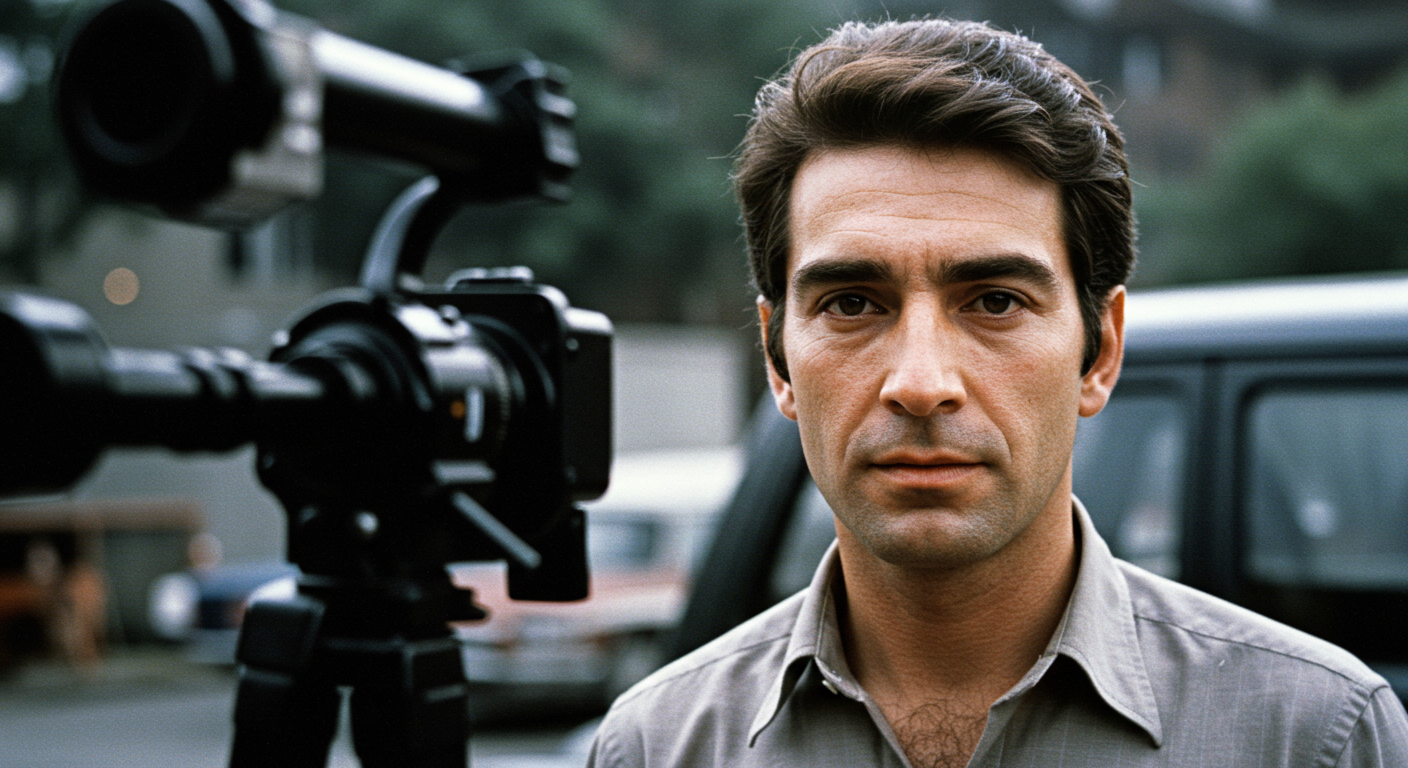The name John Cazale may not be instantly familiar to younger generations, yet his impact on cinema is extraordinary. In a career tragically cut short, Cazale appeared in only five films, but every one of them became a masterpiece. His work in The Godfather, The Conversation, Dog Day Afternoon, The Godfather Part II, and The Deer Hunter cemented him as one of the most remarkable character actors in film history.
This article explores the life of John Cazale, his unforgettable performances, and the enduring influence he continues to have on Hollywood and beyond.
John Cazale: Early Life and Passion for Acting
John Cazale was born on August 12, 1935, in Revere, Massachusetts, to an Italian-American family. He grew up in a working-class environment, where artistic aspirations were not always considered practical. Yet, from a young age, Cazale was drawn to performance.
He studied drama at Oberlin College before transferring to Boston University, where he honed his craft. After graduation, Cazale moved to New York City to pursue acting. Like many struggling performers, he worked odd jobs—including as a cab driver and messenger—to support himself while attending auditions.
His early dedication and persistence paid off when he began to attract notice in the vibrant New York theater scene.
John Cazale: Breakthrough in Theater
Before his cinematic fame, John Cazale was highly respected in theater. He performed in numerous off-Broadway productions, developing a reputation as an actor deeply committed to character immersion. His performances were noted for their vulnerability and emotional honesty—traits that would later define his film work.
It was during this period that he met a network of rising actors, including Al Pacino, who became both a close friend and collaborator. Their partnership on stage laid the foundation for their future collaborations in film.
John Cazale: The Godfather and Stardom
Cazale’s first film role came in 1972 when Francis Ford Coppola cast him as Fredo Corleone in The Godfather. Though Fredo was not the most powerful member of the Corleone family, Cazale imbued the character with complexity, insecurity, and depth.
His portrayal of Fredo made the character unforgettable—a man caught between loyalty and resentment, striving for recognition yet overwhelmed by his shortcomings. The vulnerability Cazale brought to Fredo turned him into one of the most relatable figures in the saga.
The role catapulted Cazale into the spotlight, making him a trusted actor for directors seeking nuance and emotional truth.
John Cazale: Expanding Roles in the 1970s
After The Godfather, John Cazale’s career flourished throughout the 1970s, a golden era for American cinema.
The Conversation (1974)
Directed by Francis Ford Coppola, this thriller starred Gene Hackman as a surveillance expert. Cazale played Stan, Hackman’s assistant, bringing subtle warmth and humanity to a film centered on paranoia and secrecy.
Dog Day Afternoon (1975)
In Sidney Lumet’s gripping drama, Cazale starred alongside Al Pacino as Sal, one of two men attempting to rob a bank. Cazale’s understated, quiet presence contrasted with Pacino’s intensity, creating a memorable dynamic. His delivery of the line “Wyoming” when asked about his dream destination became iconic for its simplicity and poignancy.
The Godfather Part II (1974)
Reprising his role as Fredo Corleone, Cazale delivered one of cinema’s most heartbreaking betrayals. His performance in the confrontation scene with Michael Corleone remains legendary, showcasing his ability to evoke empathy even in morally complex situations.
The Deer Hunter (1978)
Cazale’s final film, directed by Michael Cimino, was an ensemble drama about the Vietnam War’s impact on small-town America. Despite being gravely ill during filming, Cazale gave a moving performance as Stan. His real-life partner, actress Meryl Streep, supported him through the process.
John Cazale: A Career of Five Perfect Films
What makes John Cazale unique is not only his talent but also his unparalleled filmography. Every movie he appeared in was nominated for the Academy Award for Best Picture, and three won the award. Few actors can claim such an extraordinary record.
This consistency demonstrates both his ability to choose meaningful roles and the trust that visionary directors placed in him.
John Cazale: Influence on Co-Stars
Many of Hollywood’s greatest actors credit John Cazale as a formative influence.
-
Al Pacino called him one of the greatest actors he ever worked with, praising his authenticity and generosity on set.
-
Meryl Streep, who was romantically involved with Cazale until his death, often described him as her inspiration, both personally and professionally.
-
Robert De Niro admired Cazale’s commitment, even helping cover insurance costs so he could complete filming The Deer Hunter while battling cancer.
His colleagues saw him not merely as a supporting actor but as a cornerstone of their craft.
John Cazale: Personal Life and Relationship with Meryl Streep
Cazale’s personal life was as intense and heartfelt as his screen roles. In the mid-1970s, he began a relationship with Meryl Streep, then an emerging actress. Their bond was deep, marked by mutual respect and devotion.
When Cazale was diagnosed with lung cancer in 1977, Streep stood by him, caring for him throughout his illness. She even took roles in part to be near him. Their love story, though brief, is remembered as one of Hollywood’s most poignant.
John Cazale: Battle with Illness
Tragically, John Cazale’s life and career were cut short when he succumbed to cancer on March 13, 1978, at just 42 years old. His death devastated his friends, collaborators, and fans.
Despite his short life, he left behind a body of work that continues to inspire. His dedication to craft, even in the face of illness, remains a testament to his passion for acting.
John Cazale: Legacy in Modern Cinema
Decades after his passing, John Cazale’s influence endures. His five-film portfolio is studied in film schools worldwide as an example of character acting at its finest. Documentaries such as I Knew It Was You: Rediscovering John Cazale (2009) have introduced his genius to new generations.
In a time when actors often chase stardom, Cazale’s career reminds us that artistry and authenticity matter more than fame. He remains a model of humility, collaboration, and emotional depth.
John Cazale: Why He Still Matters
Why does John Cazale continue to resonate today? Because his performances reflect the human condition—fragile, conflicted, yet profoundly real.
Whether portraying Fredo’s insecurity, Sal’s quiet desperation, or Stan’s understated loyalty, Cazale captured truths that transcend time. His legacy proves that even a brief career can leave a permanent mark on culture.
Conclusion
The story of John Cazale is both inspiring and tragic. In just five films, he achieved what many actors strive for over decades: universal acclaim, peer admiration, and an enduring legacy. Though his career was short, his impact on cinema is immeasurable.
Every time audiences revisit The Godfather, Dog Day Afternoon, or The Deer Hunter, they rediscover the brilliance of a man who gave everything to his art. John Cazale reminds us that greatness is not measured by longevity, but by the depth of one’s contribution.

